|
Progressive Men of
Iowa
1899
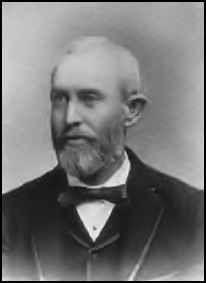 BALDWIN, William
Wright, of Burlington, is one of the best-known
railroad attorneys of Iowa, having been for many
years associated with the Burlington company.
His father, Charles Baldwin, also a lawyer of
ability, is now living in Keosauqua, at an
advanced age, and was one of the very earliest
settlers of Van Buren county, coming there in
1840 from Ohio. He is a
man of much force of character and the highest
integrity. Mr. Baldwin's mother, Rachel Wright,
was born in 1816, and came from Indiana to Van
Buren county, Iowa, in 1840, and is still living
at Keosauqua. The Baldwins are direct
descendants of John Baldwin, a leader in the New
Haven colony, which came from England in 1638.
He settled at Milford, Conn. Members
of the family did good service in the
revolution, and among many well-known
descendants are Abraham Baldwin, a signer of the
Declaration of Independence from Georgia, Judge
Nathaniel Baldwin, a distinguished jurist of
Connecticut, and Hon. John W. Daniel, now United
States senator from Georgia. The members of his
mother's family, the Wrights, have occupied many
prominent positions. Hon. Joseph A.
Wright, Mrs. Baldwin's brother, was governor of
Indiana, United States senator, and twice
appointed ambassador to Germany, where he died
at his post in Berlin. Another brother, Hon.
George G. Wright, was for many years' chief
justice of the supreme court of Iowa, and also
United States senator. BALDWIN, William
Wright, of Burlington, is one of the best-known
railroad attorneys of Iowa, having been for many
years associated with the Burlington company.
His father, Charles Baldwin, also a lawyer of
ability, is now living in Keosauqua, at an
advanced age, and was one of the very earliest
settlers of Van Buren county, coming there in
1840 from Ohio. He is a
man of much force of character and the highest
integrity. Mr. Baldwin's mother, Rachel Wright,
was born in 1816, and came from Indiana to Van
Buren county, Iowa, in 1840, and is still living
at Keosauqua. The Baldwins are direct
descendants of John Baldwin, a leader in the New
Haven colony, which came from England in 1638.
He settled at Milford, Conn. Members
of the family did good service in the
revolution, and among many well-known
descendants are Abraham Baldwin, a signer of the
Declaration of Independence from Georgia, Judge
Nathaniel Baldwin, a distinguished jurist of
Connecticut, and Hon. John W. Daniel, now United
States senator from Georgia. The members of his
mother's family, the Wrights, have occupied many
prominent positions. Hon. Joseph A.
Wright, Mrs. Baldwin's brother, was governor of
Indiana, United States senator, and twice
appointed ambassador to Germany, where he died
at his post in Berlin. Another brother, Hon.
George G. Wright, was for many years' chief
justice of the supreme court of Iowa, and also
United States senator.
Hon. W. W. Baldwin
was born September 28, 1845, at Keosauqua, Van
Buren county. He attended the public schools of
that city, and in 1860 and 1861 was a student at
Lane's academy, founded by Rev. Daniel
Lane, one of the celebrated Andover Band of
Congregational ministers. He entered the State
university in 1862 from Keosauqua and graduated
in 1866. He helped to found the Zetegathean
society, and belonged to the Beta Theta Pi
fraternity. He was an active debater, and was
thoroughly identified with the life of the
university. Upon leaving college, he entered the
Iowa Law school, then located in Des Moines, and
afterwards established as the law department of
the State university. He
graduated from the law school in 1867,
delivering the salutatory address of the class.
While a law student he earned considerable money
copying for the printer the opinions of the
supreme court, and, upon graduating, had a
capital of $75, after paying all bills. He then
entered the office of J. C and B. J. Hall at
Burlington as a clerk and office boy, and, at
the end of a year, accepted an offer to become a
partner of the late Judge Harrington, with whom
he remained two years, and then formed a
partnership with his former employers, J. C. and
B. J. Hall In 1879 he accepted the position of
land commissioner for the Chicago, Burlington
& Quincy Railway company, and has remained
in their service ever since. He is now assistant
to the president, and is president of the St.
Louis, Keokuk & Northwestern, and other
branches of the Burlington system. He was one of
the active promoters of the Burlington &
Northwestern railway, and has been a member of
the board of directors ever since it was
organized.
Thoroughly public spirited, Mr. Baldwin
has always been prominent in aiding local
enterprises. He has been president of the
Burlington school board for many years, a
trustee of the public library, and, from its
foundation, president of the Charity
Organization society of Burington. He is also
director and secretary of the Opera House
company.
While at college, Mr.
Baldwin enlisted, in 1864, as a private in
Company D, Forty-fourth Iowa infantry, and was
discharged September 15, 1864, by the expiration
of his term of enlistment. The service of his
regiment was in western Tennessee. Mr. Baldwin
has always been a democrat, and a firm believer
in sound money and a low
tariff.
Mr. Baldwin was
married in 1870, at Des Moines, to Miss Alice
Tuttle. To them four children have been
born.
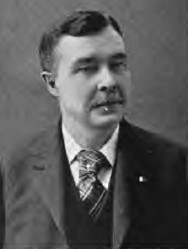 BARHYDT,
Theodore Wells, has been conspicuous in the
history of Burlington for more than forty years,
and has had a large part in advancing the
prosperity and growth of that city. Mr. Barhydt
was born in Newark, N. J. April 10, 1835; he was
the son of Nicholas and Phoebe H. Gardner
Barhydt. His father was a native of New York and
his mother of New Jersey. On both sides, his
ancestors were among the first settlers of their
respective states. On the paternal side, the
Barhydts settled on the Hudson river below
Albany in 1665, and the Gardners were among the
early settlers of New Jersey, and very prominent
citizens of that state. Jerome Barhydt,
grandfather of Theodore W., was a revolutionary
soldier and a very highly-respected citizen of
Schenectady, N. Y. BARHYDT,
Theodore Wells, has been conspicuous in the
history of Burlington for more than forty years,
and has had a large part in advancing the
prosperity and growth of that city. Mr. Barhydt
was born in Newark, N. J. April 10, 1835; he was
the son of Nicholas and Phoebe H. Gardner
Barhydt. His father was a native of New York and
his mother of New Jersey. On both sides, his
ancestors were among the first settlers of their
respective states. On the paternal side, the
Barhydts settled on the Hudson river below
Albany in 1665, and the Gardners were among the
early settlers of New Jersey, and very prominent
citizens of that state. Jerome Barhydt,
grandfather of Theodore W., was a revolutionary
soldier and a very highly-respected citizen of
Schenectady, N. Y.
T. W. Barhydt
received his education in the private schools
and Lyceum academy of Schenectady, and spent his
time in school and in working in his father's
boot and shoe store until 1855 when he came
west, locating at Burlington, where his
relatives, Dr. and Mrs. G. W. Snyder, persuaded
him to try his fortune. Soon after his arrival,
Mr. Barhydt accepted a clerkship in the shoe
store of Mr. Sweetser, and, not long afterwards,
became one of the principal clerks in the post
office. In 1859 he opened up a new boot and shoe
store, in partnership with Mr. Tizzard, who was
postmaster at that time. The partnership
continued for one year, when Mr. Barhydt
purchased his partner's interest, and, for some
years, ran the business alone. In 1866 he took
in, as a partner, his brother-in-law, Mr. Henry
A. Brown, and, since that time, has not been
active in the business himself. In 1870 he
assisted in the organization of the Merchants
National bank, and has been its president ever
since, and is also a director in the
German-American Savings bank. He became
interested in the building of railroads in Iowa
in an early day, and was one of the organizers
of the Burlington, Cedar Rapids & Minnesota,
now the Burlington, Cedar Rapids & Northern
Railway company, and was for several years one
of its directors, and also a member of the
executive committee. He was also one of the
directors of the Burlington & Southwestern
railroad. In 1880 he was elected president of
the Burlington & Northwestern Railroad
company, and has served continually in that
position since that time. When the Burlington
& Western road was built, in 1881, he was
elected president of that corporation, and has
been annually re-elected since that time. Mr.
Barhydt has large real estate interests in
Burlington, and is the owner of the Dolano
hotel, and several other business
blocks.
He has never been a
politician, but has held several offices of
public trust. He was one of the citizens through
whose influence the Burlington water works were
established, and was one of the principal
builders and promoters of the first street
railway in the city, serving for several years
as treasurer of the company. He has been
president of the board of trade, a member of the
city council, and a director and treasurer of
the city water company. Mr. Barhydt has every
reason to be gratified with the results of his
labor, both financially and intellectually. He
has been an extensive traveler and has profited
by contact with the distant scenes which he has
visited. He has been a man of the world, and at
the same time an earnest student of literature
and art. As a business man, as a member of
society, as a manipulator of public affairs, and
as a man who has taken every opportunity of
advancing the welfare of his home city, he has
the highest respect of all. The young business
man who takes Mr. Barhydt's career for example
need fear no disaster from which he may not
readily and quickly recover.
He has been prominently
connected with the Masonic order since 1862,
being a member of the Des Moines Lodge No. 1, A.
F. & A. M., of Iowa Chapter No. 1, R. A. M.,
St Omar Commandery No. 15, K. T., and of Kaaba
Temple of the Mystic Shrine. He is also a member
of the Sons of the Revolution and is one of the
board of managers for the state of Iowa. He has
lately been elected a member of the Holland
society of New York. Politically he has always
been affiliated with the democratic party, but
his life has always been too much taken up with
business pursuits to accept or desire any public
office. His wife was
Miss Eleanor Christiancy, of Knickerbocker Dutch
origin, and, like himself, of revolutionary
stock. They have both been active members of
the First
Presbyterian church of Burlington since
1863.
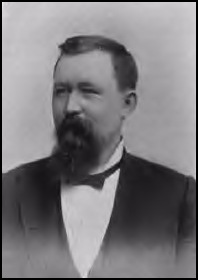 CASTER, Dr.
Jacob S., is a son of the late Dr. Paul Caster,
of Ottumwa, and is a native of Decatur county,
Iowa. When quite young he became associated with
his father in his work in various ways. In 1874
he took charge of the engine in the heating
department of his father's large infirmary,
which resulted in giving him a taste for
machinery that greatly influenced his after
life. In 1878 he was made superintendent of the
infirmary, which brought him in still closer
contact with his father, and probably accounts
for much of his subsequent success. CASTER, Dr.
Jacob S., is a son of the late Dr. Paul Caster,
of Ottumwa, and is a native of Decatur county,
Iowa. When quite young he became associated with
his father in his work in various ways. In 1874
he took charge of the engine in the heating
department of his father's large infirmary,
which resulted in giving him a taste for
machinery that greatly influenced his after
life. In 1878 he was made superintendent of the
infirmary, which brought him in still closer
contact with his father, and probably accounts
for much of his subsequent success.
He was married March
23, 1880, to Miss Mary E. Biederman, of Ottumwa,
and in August of that year resigned his position
as superintendent of the infirmary to engage in
other business. For a
short time he was employed as a machinist in the
Chicago, Burlington & Quincy round house at
Creston, and in November, 1881, removed to
Burlington, Iowa, where he was employed as a
machinist by the same company. His father had
urged him strongly to use the gift of healing,
which he knew he possessed, but the son was
prejudiced against it, and felt compelled to
refuse his father's request It was not until
1887, when out of sympathy for suffering
friends, he treated several cases with such
wonderful success, that his power became known.
He was then sought after constantly by some
sufferer, but according to a promise made his
father, he received no pay until he came before
the world publicly as a magnetic healer.
In June, 1889, he
received his first public patient. The following
November he opened an infirmary, which soon
proved too small to accommodate his patients and
in June, 1891, he removed to larger quarters,
and in November, 1894, to his present location
on North Fourth street. Dr. J.
S. Caster has, like his father, had patients
from nearly every state in the union and from
more than 500 different cities. He
possesses a wonderful power of diagnosis, being
able to accurately describe the patient's
trouble, sometimes going back twenty years for
causes long since forgotten by the sufferer, and
this without asking a
question.
He does not claim to
be able to cure every case that presents itself,
but bis success has been something almost
miraculous, as shown by the joyful testimony of
hundreds of patients, including many of the most
prominent people of Burlington, as well as of
the state, who have been permanently cured or
have gained years of comparative health from his
treatment, after being pronounced hopelessly
incurable. The doctor belongs to a number of
secret societies, and originated and carried out
a plan for " Secret Society Day " during the
semi-centennial celebration in Burlington, in
October, 1896, conducting a parade which
contained nineteen different secret societies.
He belongs to the Masons, Odd Fellows, A. O. U.
W. and other orders. The
doctor is a strong advocate of the principles of
the republican party, and vigorously supports
that organization. In 1896 he was elected
alderman in a democratic ward, by a large
majority.
Dr. and Mrs. Caster have three children
living: Charles Edwin, born February 28, 1883;
Mabel Rose, born May 25, 1887, and Mary Blanche,
born May 7, 1890.
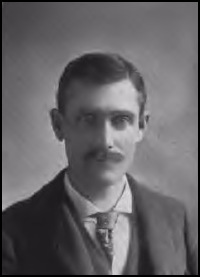 CLARK, Charles
Clapp, the well-known lawyer of Burlington, and
county attorney, is a son of J. Warren and
Sophia M.
Clapp Clark. He was born July 10, 1859,
in Huntsburg, Geauga county, Ohio. The original
American ancestor on the Clark side was William
Clark, who came to Massachusetts about 1630.
Roger Clapp, the founder of the mother's family
in this country, settled in Massachusetts about
the same time, Mr. Clark's father served in the
war of the rebellion as a union soldier and died
from the effects of that service, in August,
1867. His wife died in November, 1884. CLARK, Charles
Clapp, the well-known lawyer of Burlington, and
county attorney, is a son of J. Warren and
Sophia M.
Clapp Clark. He was born July 10, 1859,
in Huntsburg, Geauga county, Ohio. The original
American ancestor on the Clark side was William
Clark, who came to Massachusetts about 1630.
Roger Clapp, the founder of the mother's family
in this country, settled in Massachusetts about
the same time, Mr. Clark's father served in the
war of the rebellion as a union soldier and died
from the effects of that service, in August,
1867. His wife died in November, 1884.
The parents had removed to
Iowa City, Iowa, about 1856, and here, in the
public schools and in the State university,
Charles C. received his education. He took the
degree of A. B. in June, 1881, and the degree of
A. M. was conferred upon him in June, 1884 After
graduation in 1881, he took the position of
principal of the Fairfield, Iowa, high school,
where he taught two years, and became teacher of
mathematics in the high school in
Burlington. He resigned
that position and entered the State University
Law school in 1885, entering in the senior year,
having studied during the previous year and
summer to make up the junior year work, which he
succeeded in doing, as he passed a creditable
examination. He graduated in June, 1886, and in
August returned to Burlington and entered into a
very desirable law partnership with John J.
Seerley, since elected to congress and referred
to elsewhere in this work, and the practice and
partnership have continued ever since. Unlike
his partner, Mr. Clark is a republican, and when
Des Moines county became republican in 1896, his
party services and professional ability were
recognized by an election to the office of
county attorney. This was repeated in the fall
of 1898. He served as a member of the school
board from 1891 to 1897. Mr. Clark belongs to
the Masonic fraternity and was junior grand
warden of the grand lodge of Iowa, in 1896-97.
He was married September 5, 1885, to Ella
Lamson, of Fairfield, Iowa. They have one child,
Margaret M.
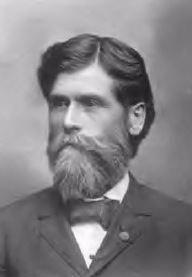 CRAPO,
Philip M., a prominent, wealthy, and
philanthropic citizen of Burlington, was born in
Freetown, near New Bedford, Mass., June 30,
1844. He traces his ancestry through more than
two centuries. CRAPO,
Philip M., a prominent, wealthy, and
philanthropic citizen of Burlington, was born in
Freetown, near New Bedford, Mass., June 30,
1844. He traces his ancestry through more than
two centuries.
The founder of the family in
America was Mr. Pierre, or
Peter, Crapo. About 1675, when a mere lad, he
was cast ashore with his brother upon the New
England coast by the wrecking of a French
vessel, of which his brother was commander. The
elder brother returned to France. Peter remained
with the Massachusetts colonists, and when he
arrived at manhood married a granddaughter of
Peregrine White. His wife's grandfather enjoyed
the distinction of being the first white child
born in the Plymouth colony. Philip M. Crapo's
father. Philip, was
born October 12, 1796, and was married in 1823
to Hannah Crapo.
Their son enjoyed the
benefits of an excellent school system and was
prepared for college. His college plans were
interrupted by his enlistment as a private
soldier in the Third Massachusetts infantry. He
served in the eastern department with
headquarters at Newberne, N. C. After the war
Mr. Crapo went to Michigan, where he engaged as
a civil engineer in the construction of what is
now the Flint and Pere Marquette railroad. He
afterwards engaged in the state offices at
Detroit in the preparation of the military
history of Michigan. While a resident of Detroit
Mr. Crapo occupied a prominent social position,
being a member of many social, literary, and
military organizations.
In April, 1868, he came to
Iowa and took charge of the business of the
Connecticut Mutual Life Insurance company in the
southern half of the state. Subsequently his
territory was enlarged and he was made the
general agent for the company for Iowa and
Nebraska, to which he devoted his attention for
thirteen years. In 1882 he was appointed
financial correspondent of the company, which
position he has filled continuously since that
date. He has served the company successfully and
satisfactorily for more than thirty-one
years.
While Mr. Crapo has always
been an active republican, he has never been an
office seeker. He was chairman of the republican
congressional committee in his district in the
campaigns of 1886 and 1888, and in 1885 was
county chairman for Des Moines county. He
accepted the nomination for state senator in
that year, and, though he ran very much ahead of
his party ticket, he could not overcome the
democratic majority in the county. In 1889 his
friends supported him loyally in the republican
state convention for the nomination for
governor.
Mr. Crapo has devoted much
of his time and has been a liberal contributor
to the advancement of public interests. He has
been energetic in his endeavors to bring
railroad competition to Burlington. In 1887 he
organized a company and secured a charter from
congress to build a combination bridge across
the Mississippi at Burlington, but after
completing arrangements for its use, and after
the taxpayers had expressed their willingness to
vote a large tax to aid the project, a majority
of the members of the bridge company declined to
assume the responsibility and the bridge has
never been built.
Mr. Crapo was chiefly
influential in securing the establishment of the
Soldiers' home, located at Marshalltown, and
delivered the address on behalf of the old
soldiers at its dedication. He has been active
in securing appropriations for the home ever
since It was established. With the same energy
and devotion he worked for the appropriation for
the building of the soldiers' monument in Des
Moines, and the passage of the bill was much due
to his efforts. When the Burlington Subscription
library, a stock company, proposed to donate its
valuable collection or books to the city,
Mr. Crapo
guaranteed the debt so the city council could
accept the gift. Heading the list with a
generous subscription, he speedily collected the
balance, paid the debt, and Burlington's free
public library was established. He has continued
to take a deep interest in the library and is
one of its trustees. As a member of
the purchasing committee he has selected nearly
all the books that have been purchased for the
last fourteen years, something more than 12,000
in number. He has recently made it possible for
the city to erect the new public library
building by contributing about one-half of the
cost thereof. As chairman of the building
committee he had almost exclusive charge of the
erection of the beautiful and commodious library
building, which has no equal in Iowa.
During his long and active
business career in Burlington, Mr. Crapo has
filled many positions of trust, in all of which
he has been a zealous and faithful worker,
serving without compensation for any services
rendered the public. He has been president of
the Burlington & Illinois Bridge company,
president of the Burlington Board of Trade,
president of the Commercial club of Burlington,
president of the Burlington & Henderson
County Ferry company, trustee of the city for
the ferry franchise, trustee of the public
library, trustee of the Congregational church,
and park commissioner. His name was given to the
national guard camp at Burlington in 1888, and
it has been adopted as the camp name for the
local organization of the Sons of Veterans. Mr.
Crapo took an active part in starting the
movement for paving the principal streets of
Burlington with brick, and his efforts in behalf
of the improvement of the Mississippi river were
acknowledged by his appointment on the committee
to prepare a memorial to congress by not less
than five of the great conventions called to
consider the question of the improvement of
waterways. He was chiefly instrumental in
securing a public park for the city of
Burlington. In consideration of his services the
city council complimented him by naming the new
pleasure ground " Crapo Park."
Another Important service
which Mr. Crapo rendered to his city and state
was the contribution of service and money which
he made to the semi-centennial celebration of
the admission of Iowa as a state, which was held
in Burlington in 1896. Mr. Crapo was
president of the board of commissioners
appointed by Governor Drake and was actively in
charge.
In fact this successful
business man has been prominent in all matters
affecting the growth and prosperity of city and
state, and especially in everything calculated
to promote education and contribute to the
health and happiness of the people. He was
married September 6, 1870, to Ruth A. Ray. They
have had seven children: Edith Ray, born August
13, 1871; Philip Ashley, born July 17, 1873;
Chester Frederick, born July 25, 1876; Clifford
Maxwell, born September 6, 1878; Ruth Kelsall,
born September 2, 1880; Lucy Howland, born April
7, 1883, and William Mitchell, born July 24,
1886. The oldest son, Philip Ashley, was a
graduate of Phillips Exeter academy and the
Harvard Law school. He had recently begun the
practice of law in New York city when the
Spanish-American war began. He left his business
and came to Iowa to enlist in Company F,
Fiftieth Iowa infantry. He died in the service,
of typhoid fever, at Jacksonville, Fla.,
September, 1898.
The
information on Trails to the
Past © Copyright
may be used in personal family history research,
with source citation. The pages in entirety may
not be duplicated for publication in any fashion
without the permission of the owner. Commercial
use of any material on this site is not
permitted. Please respect the wishes of
those who have contributed their time and
efforts to make this free site possible.~Thank
you! |